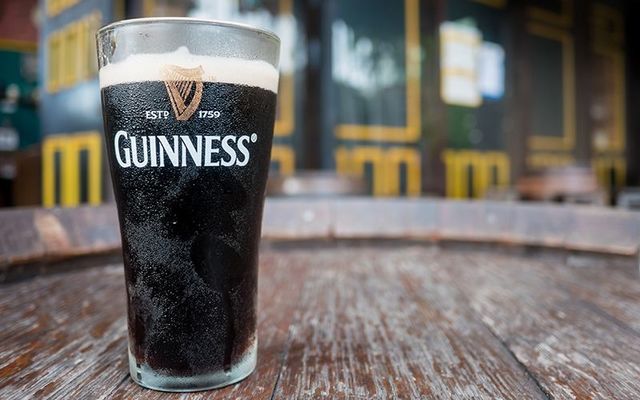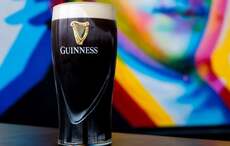So it turns out that Guinness wasn’t lying to you with its famous “Guinness is good for you” signs and adverts!
While most health nuts search for a “light” beer at the bar you can indulge in a nice Guinness Extra Stout consuming just slightly more than you would by drinking a Miller Lite.
Totally worth it right?
So let’s break it down. A pint of Guinness has 210 calories, a bottle just 125. That’s compared to Bud Light at 110 and Miller Lite at 96. Surprising right!
According to Men's Fitness “Guinness has fewer calories than the most popular non-light beers on the market… Guinness also has the second to lowest carbs and the lowest alcohol.”
Most people think that because Guinness is a darker beer it will be “heavier” but Guinness beer’s rich color comes from the fact that the grains used are heavily roasted. This roasting also adds those delicious chocolate and coffee notes to the beer.
You might think that Guinness is calorific because of its creamy text but that’s down to the fact that those crafty brewers use nitrogen rather than carbon dioxide in the beer. The nitrogen bubbles are much smaller than the carbon dioxide bubbles you find in beers or sodas and so Guinness’ effervescence is subtler.
So, the main culprit, calorie-wise, in a pint of Guinness, is the alcohol. Curses! Each gram of alcohol has seven calories. The good news? Guinness has a relatively low alcohol level from four to six percent! Good news!
Here’s a rundown of the nutritional information in a pint of Guinness / 568ml:
Calories - 210
Grams of Protein - 1.9
Grams of Carbohydrate - 18.2
Grams of Fat - 0.3
Grams of Fiber - 0
Grams of Alcohol - 23.9
So, what are we saying? We’re saying drink up but drink responsibly! And if you’re on a diet hunt down some mid-strength Guinness. Delicious!
Is Guinness good for you?
One of the things that sets Guinness apart from other beers is its unique nutritional profile. Although it is often referred to as a "meal in a glass," Guinness is actually a relatively low-calorie beer. A 12-ounce serving of Guinness contains just 125 calories, which is less than many other types of beer.
However, what Guinness lacks in calories it more than makes up for in nutrients. Guinness is a rich source of iron, which is essential for healthy blood and immune function. In fact, a 12-ounce serving of Guinness contains almost 4% of your daily recommended intake of iron.
Guinness is also a good source of antioxidants, which can help to reduce inflammation and protect against a range of health problems. Antioxidants are particularly important for maintaining healthy skin and preventing damage caused by free radicals.
In addition, Guinness contains a variety of vitamins and minerals that are important for overall health and well-being. It is a good source of vitamin B6, which helps to support brain function and mood, as well as niacin, which is important for maintaining healthy skin and nerves.
If you're looking to enjoy the health benefits of Guinness without alcohol, there are also non-alcoholic versions of the beer available. These "Guinness Zero" and "Guinness Draught" contain all of the same nutrients and antioxidants as regular Guinness but without alcohol.
Always drink alcohol responsibly. Visit www.drinkaware.ie for more information.
*Originally posted in 2018. Updated in April 2023.




Comments